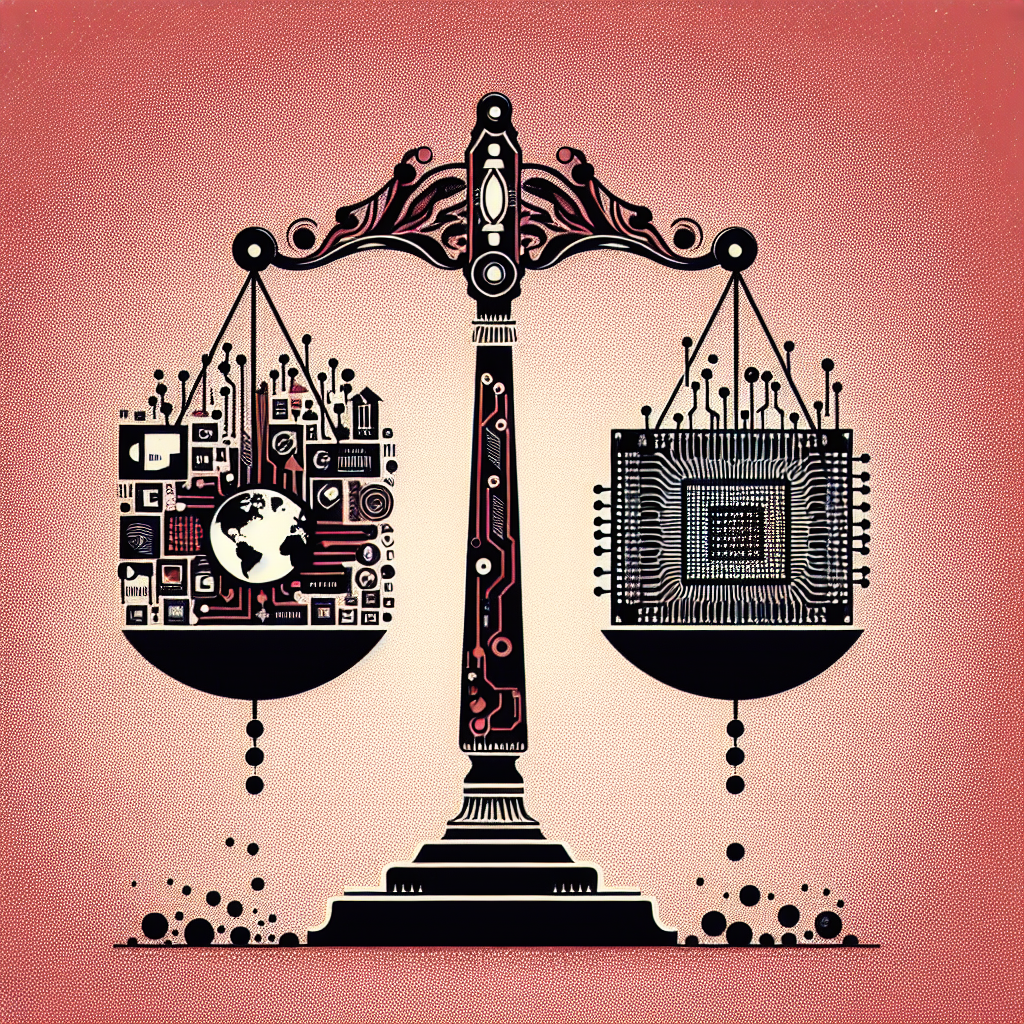Artificial intelligence (AI) has rapidly become a dominant force in the technological landscape, revolutionizing industries and transforming the way we live and work. While AI has the potential to bring about significant benefits, there are also concerns about its impact on social inequality. As AI software becomes more advanced and widespread, it is crucial to examine how it may exacerbate existing inequalities and create new ones.
The Impact of AI Software on Social Inequality
1. Employment
One of the most significant concerns about AI is its impact on employment. As AI technology becomes more advanced, there is a growing fear that it will lead to widespread job displacement, particularly in industries that rely heavily on manual labor or routine tasks. This could result in a widening gap between those who have the skills to adapt to the changing job market and those who do not.
Furthermore, AI has the potential to create a two-tiered labor market, with high-skilled workers benefiting from increased productivity and automation, while low-skilled workers struggle to find employment. This could lead to increased income inequality and a greater divide between the haves and have-nots.
2. Access to Education and Training
Another area where AI could impact social inequality is in access to education and training. As AI technology becomes more prevalent, there will be an increasing demand for workers with skills in areas such as data science, machine learning, and programming. Those who do not have access to quality education and training in these areas may find themselves at a disadvantage in the job market.
Furthermore, AI-powered educational tools and platforms could further exacerbate existing educational disparities. Students from wealthier backgrounds may have access to more advanced AI tools and resources, giving them an advantage over their less privileged peers.
3. Bias and Discrimination
AI algorithms are only as good as the data they are trained on, and there is growing concern that biased data could lead to biased outcomes. For example, AI algorithms used in hiring processes may inadvertently discriminate against certain groups based on factors such as race, gender, or socioeconomic status.
In a society already plagued by systemic inequalities, the use of biased AI algorithms could further entrench these disparities. It is crucial that developers and policymakers take steps to ensure that AI systems are fair and unbiased in their decision-making processes.
4. Access to Healthcare
AI has the potential to revolutionize healthcare by improving diagnostics, treatment planning, and patient outcomes. However, there are concerns that AI-powered healthcare systems may exacerbate existing healthcare disparities. For example, those who have access to high-quality healthcare facilities and resources may benefit more from AI-powered healthcare than those who do not.
Furthermore, there is a risk that AI algorithms used in healthcare may perpetuate existing biases in the healthcare system. For example, if AI algorithms are trained on data that reflects existing healthcare disparities, they may inadvertently reinforce these disparities in their decision-making processes.
FAQs
1. How can we ensure that AI software does not exacerbate social inequality?
One way to mitigate the impact of AI on social inequality is to ensure that AI systems are designed and implemented with fairness and equity in mind. This includes ensuring that AI algorithms are transparent, accountable, and free from bias. Additionally, policymakers should consider implementing regulations and guidelines to ensure that AI technology is used in a way that benefits society as a whole.
2. What role can individuals play in addressing the impact of AI on social inequality?
Individuals can play a role in addressing the impact of AI on social inequality by advocating for policies that promote fairness and equity in AI technology. This includes supporting initiatives that promote diversity in the tech industry, as well as advocating for greater transparency and accountability in AI systems. Additionally, individuals can educate themselves about the potential impact of AI on social inequality and work to raise awareness about these issues.
3. How can we ensure that AI technology is used in a way that benefits society as a whole?
One way to ensure that AI technology benefits society as a whole is to involve a diverse range of stakeholders in the development and implementation of AI systems. This includes input from policymakers, academics, industry experts, and members of the community. Additionally, policymakers should consider implementing regulations and guidelines to ensure that AI technology is used in a way that promotes fairness, equity, and social good.
In conclusion, AI software has the potential to bring about significant benefits, but it also has the potential to exacerbate existing social inequalities. It is crucial that developers, policymakers, and individuals work together to address these concerns and ensure that AI technology is used in a way that promotes fairness, equity, and social good. By taking proactive steps to address the impact of AI on social inequality, we can help create a more equitable and inclusive society for all.

